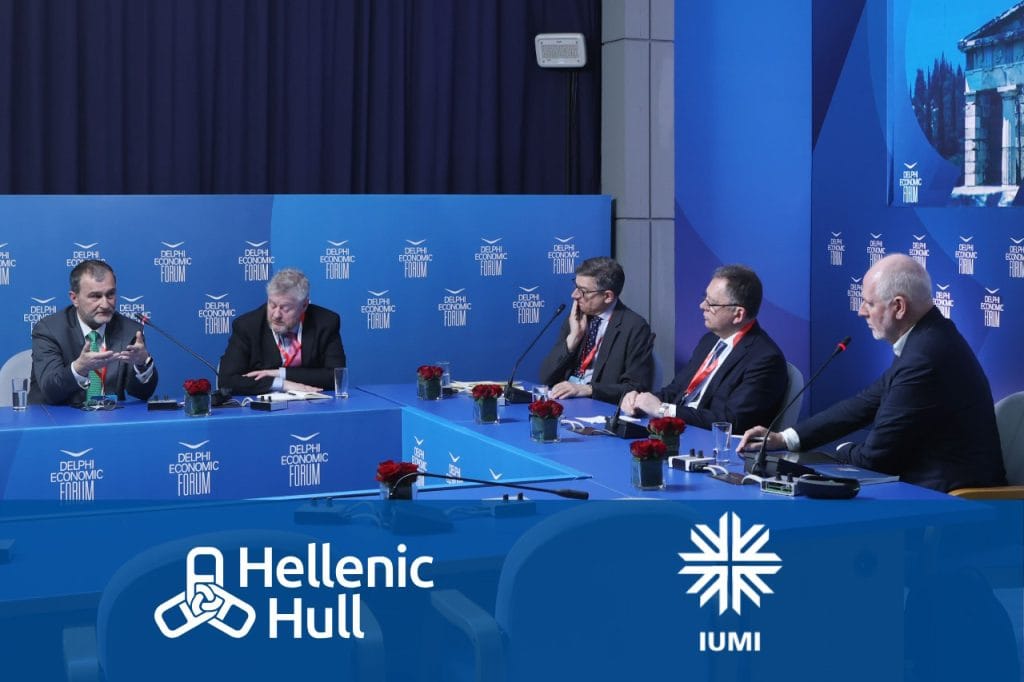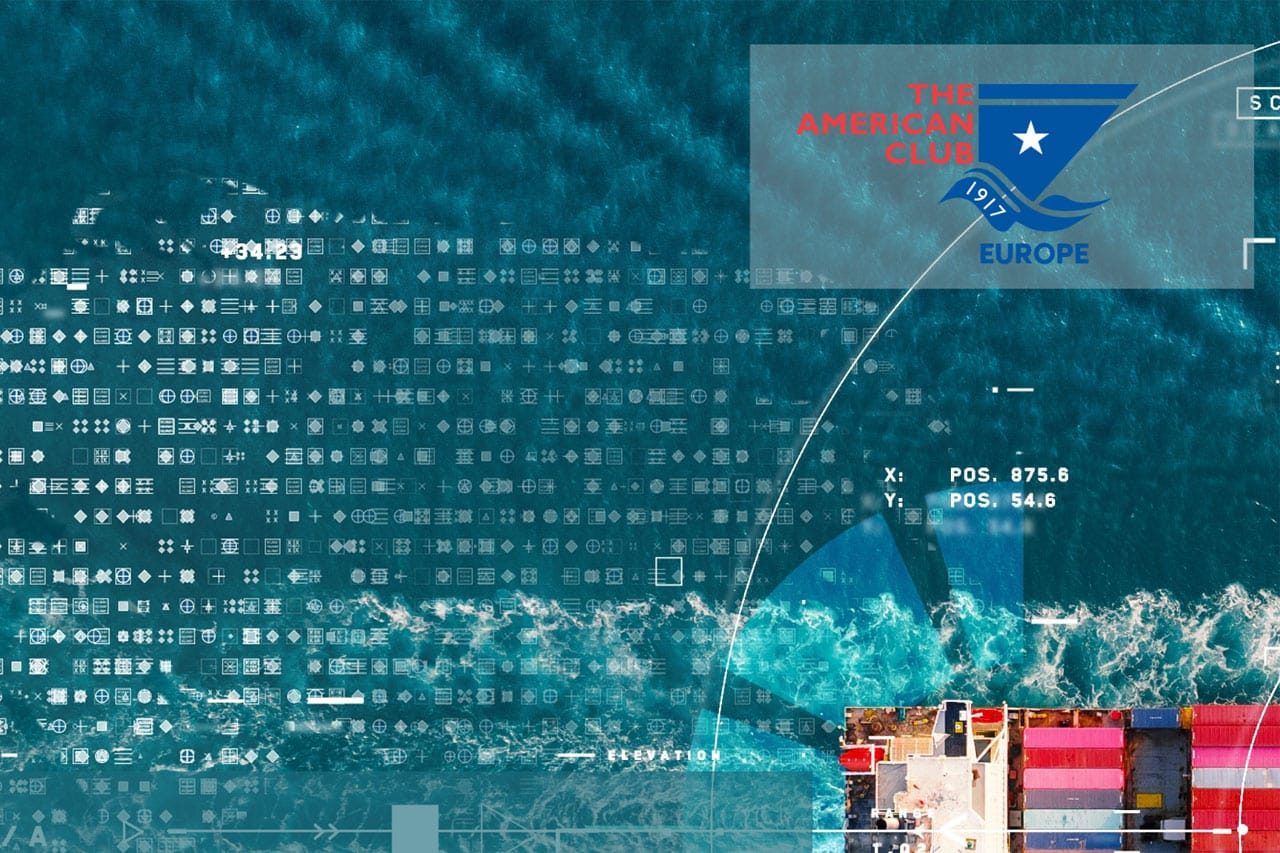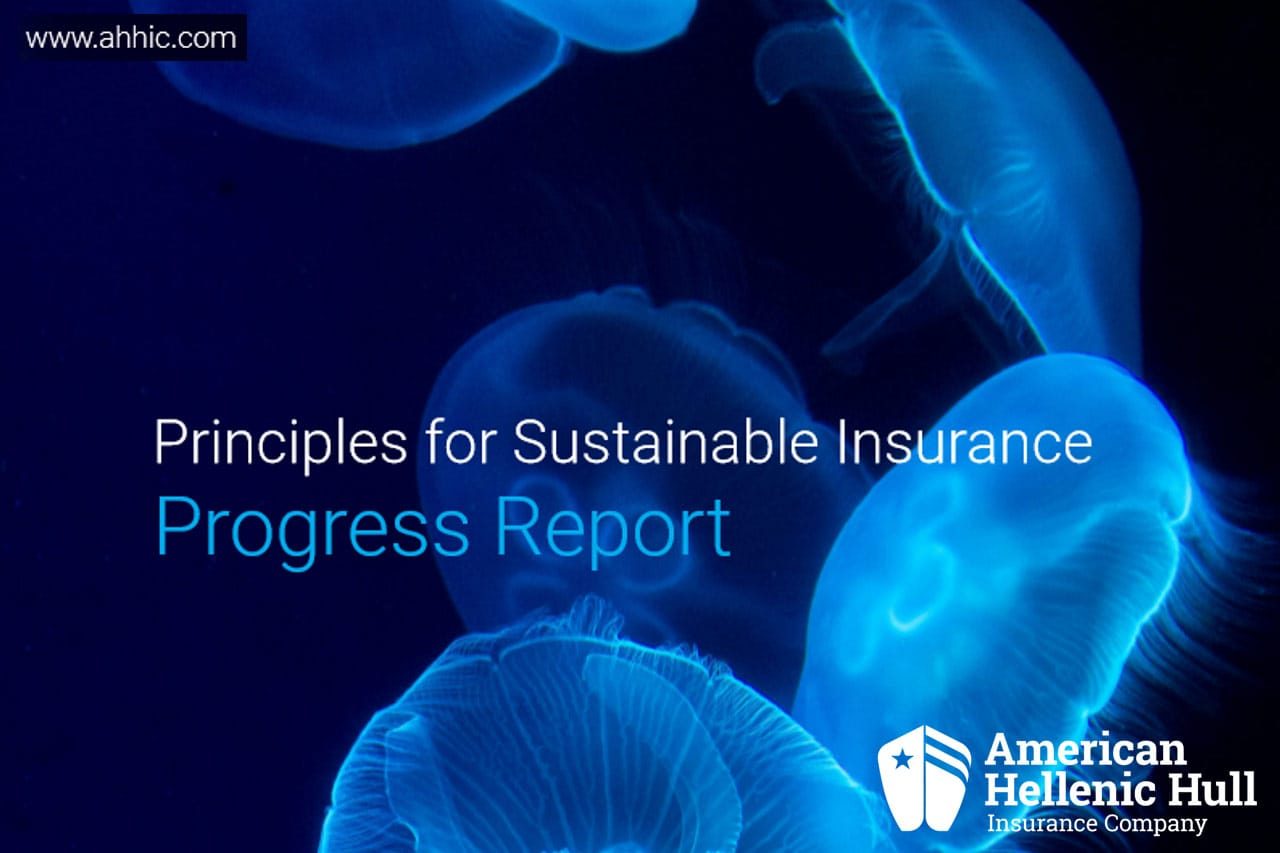At the recent Delphi Economic Forum, Greece’s premier financial conference, I had the honour of participating in a critical panel discussion organised by Hellenic Hull and the International Union of Marine Insurance (IUMI). Held on April 11, 2024, the session, titled “Uncharted Territories: Geopolitical Tensions and Hidden Risks in International Shipping,” provided a platform for key industry insights. Our panel featured distinguished speakers including Frédéric Denèfle, IUMI President and Managing Director at GAREX; Neil Roberts, Head of Marine Aviation at Lloyd’s Market Association and Chair of the IUMI Policy Forum; and Dr Dominick Donald, Director of Autolycus Advisory. The panel discussion was moderated by Nigel Lowry, Lloyd’s List correspondent based in Athens.
The focus of our discussion was on the escalating threats in commercial marine traffic, which have intensified significantly over the past few years. Today, we see state and sub-state entities, such as the Houthis, actively targeting maritime traffic to fulfill their strategic objectives. This shift has introduced unprecedented challenges for both the shipping sector and the insurance markets.
These threats have extensive implications. If not addressed, they could disrupt global economies, impacting multiple sectors and markets. Key areas of concern include the Black Sea, the Red Sea, the Strait of Hormuz, and the East and South China Seas, all of which have become hotspots due to ongoing conflicts and geopolitical tensions. For example, the Black Sea, which was relatively peaceful three years ago, has now become a focal point due to the conflict between Russia and Ukraine.
The number of “areas of concern” for insurers has surged, reflecting the heightened risks to maritime security. This escalation necessitates a robust and adaptable insurance response to support international trade. However, the rising risks are stretching the capacity of the insurance market. Reinsurers, crucial for backing primary insurers, have shown reluctance to cover conflicts such as the Russia-Ukraine war, thereby reducing overall market capacity. Despite these challenges, marine underwriters remain committed to providing coverage, albeit at increased costs.
The growing complexity of sanctions adds another layer of difficulty to underwriting and compliance. Unlike past decades, today’s threats span a wider geographical area and are compounded by the interdependent nature of the global economy. The marine war risks market now contends with actual hostilities against ships, contrasting sharply with the relatively peaceful times when war risks were mostly theoretical. This necessitates a reevaluation of risk management strategies, including enhanced tracking of insured vessels and mutualizing capacities to cover war risks more effectively.
The number of “areas of concern” for insurers has surged, reflecting the heightened risks to maritime security. This escalation necessitates a robust and adaptable insurance response to support international trade. However, the rising risks are stretching the capacity of the insurance market. Reinsurers, crucial for backing primary insurers, have shown reluctance to cover conflicts such as the Russia-Ukraine war, thereby reducing overall market capacity. Despite these challenges, marine underwriters remain committed to providing coverage, albeit at increased costs.
The growing complexity of sanctions adds another layer of difficulty to underwriting and compliance. Unlike past decades, today’s threats span a wider geographical area and are compounded by the interdependent nature of the global economy. The marine war risks market now contends with actual hostilities against ships, contrasting sharply with the relatively peaceful times when war risks were mostly theoretical. This necessitates a reevaluation of risk management strategies, including enhanced tracking of insured vessels and mutualizing capacities to cover war risks more effectively.
Historically, governments have often stepped in as insurers of last resort to protect national trade interests—a model that might become relevant again. War has severely impacted supply chains, prompting changes in trade routes due to geopolitical tensions. These changes introduce new risks, such as longer voyages, increased wear and tear on vessels, and operations through remote areas lacking salvage capabilities. This places additional strain on both vessels and crews, heightening the likelihood of accidents.
The industry must adapt to these enhanced risks while navigating the compounded effects of geopolitical tensions and the green transition. The shift towards alternative fuels and new bunkering stations introduces another layer of uncertainty, making it crucial for insurers to price these unknowns accurately. Governments’ ability to address strategic ambitions, such as the energy transition, is often hampered by crises that consume political bandwidth, reducing the capacity to tackle long-term goals.
The shipping industry is navigating through an era of unprecedented risks, driven by strategic geopolitical interests and amplified by global interdependencies. The marine insurance market, while adapting to these challenges, faces constraints in capacity and increased costs. Effective risk management, improved coordination between public and private sectors, and strategic planning are essential to ensure the resilience of maritime trade in this volatile landscape.
The increased number and geographical spread of areas where insurers require notification from shipowners if vessels are trading there reflects the proliferation of threats. As risks rise and reinsurers hesitate to involve themselves in the worst conflicts, the direct market may be left to bear the burden alone, resulting in reduced capacity and higher costs.
With the market still digesting the shock of actual hostilities against ships, partnerships between technological suppliers and governments could help improve the management of war risks. Insuring war risks in times of peace is fundamentally different from wartime, demanding innovative approaches to risk management.
Drawing on my 30 years of experience, I recognize that war has significantly disrupted supply chains, leading to changes in trade routes and heightened risks. The commercial maritime industry must adjust to these increased risks, taking into account the combined effects of geopolitical tensions and the transition to greener practices. Likewise, the insurance market must also adapt, providing effective risk management and better coordination to sustain the resilience of maritime trade in this unpredictable environment.














